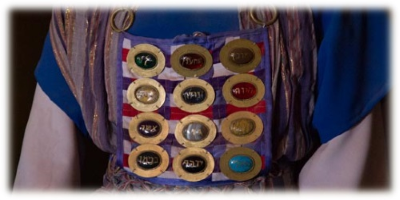Very few sermons in our Western synagogues and churches would include the passage "I [God] form the light and create darkness, I make peace and I create evil, I am the LORD who does all of these" (Isaiah 45:7) as our Western mind sees these two forces as opposing opposites. However, the Eastern mind sees them both as equals and necessary for perfect balance. In the Western mind, God is only good and therefore unable to create evil. The Eastern mind sees God as a perfect balance of all things including good (tov in Hebrew, Strong's #2896) and evil (ra in Hebrew, Strong's #7451).
It should be noted that the English word "evil" has no Ancient Hebrew equivalent, while most English translations will use the word "evil," it is usually the Hebrew word ra, which is also often translated as "bad." In the Ancient Hebrew mind there is no such thing as an "evil" person or thing. To understand the words "good" and "bad" from a more Hebraic understanding, these words should be understood as "functional" and "dysfunctional". God is both functional (such as seen in the Creation Story of Genesis one) as well as dysfunctional (such as seen with the destruction of the flood).
Our western mind classifies all things in two categories, either it is "good" or it is "bad". One is to be sought, cherished and protected, the other is to be rejected, spurned and discarded. Let us take light and darkness as an example. We see light as good and darkness as bad. The idea of light brings to mind such things as God, truth and love. Darkness on the other hand invokes Satan, lies and hate. To the Orientals, including the Hebrews, both are equally necessary as one cannot exist without the other. In the Bible God is seen as a God of light as well as darkness "And the people stood at a distance and Moses approached the heavy darkness where God was." (Exodus 20:21). If you stare at the sun, which is pure light, what happens? You become blind. If you are standing in a sealed room with no light, what happens? You are again blind. Therefore, both light and darkness are bad and yet, both are good. In order to see we must block out some of the light as well as some of the darkness.
The two poles of a magnet are north and south. These two poles create balance, they are not morally good or bad, but necessary ingredients of physics that complement each other. Good and bad are more like the north and south poles of a magnet than our Western conception of good and bad.
Can good exist without the bad? Absolutely not, how could you judge something to be good if you cannot compare it to something bad? The same is true for all other concepts. Cold cannot exist without heat, or short without tall, far without near, or large without small. Our western mind usually ignores these extremes and seeks to always find the "good" or the "bad". The Eastern mind is continually seeking both the "good" and the "bad" in order to find the balance between the two. Even Solomon recognized this when he said "Do not be overly righteous" (Ecclesiastes 7:16).
Throughout the scriptures this search for balance is found, yet ignored by Westerners who do not understand the significance of balance.

Like what you’re discovering? Continue the journey from Bible reader to translator.
|






